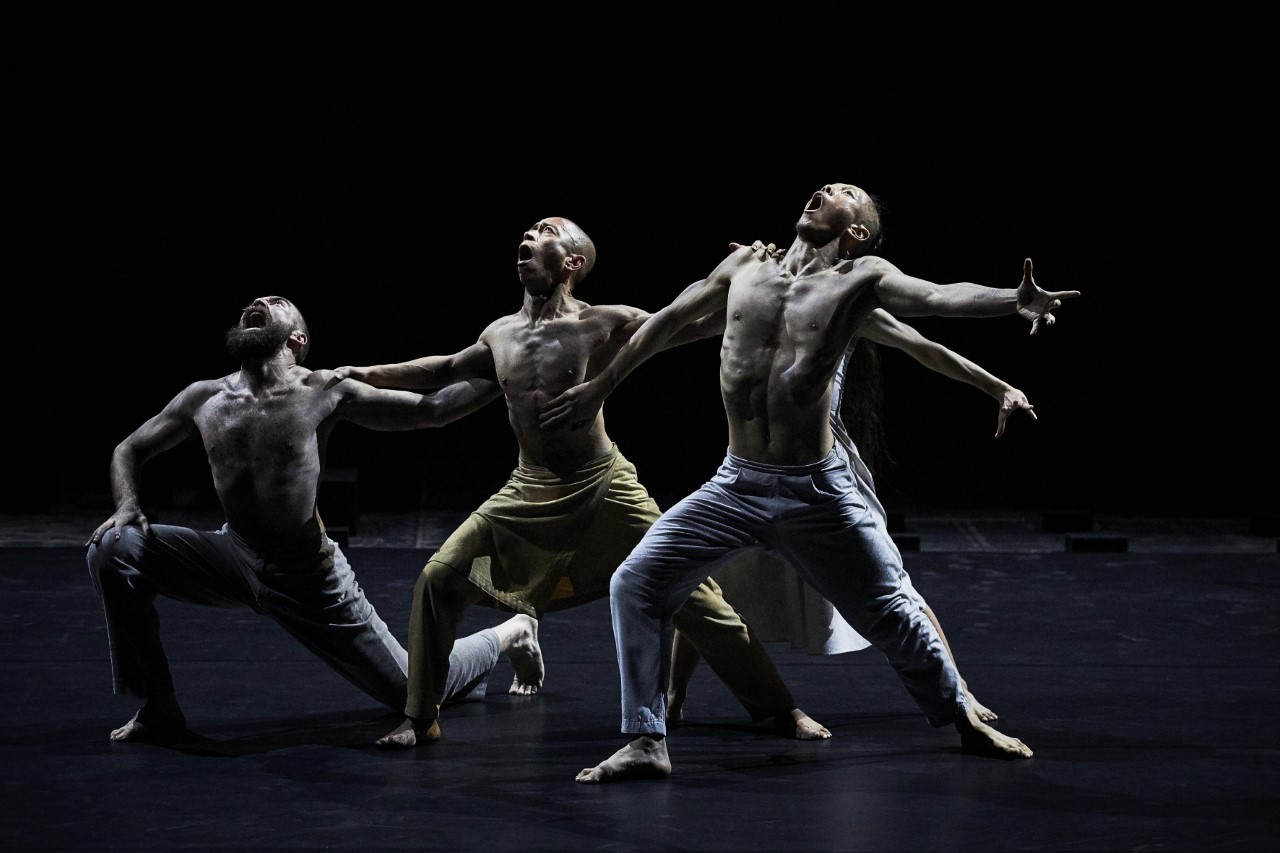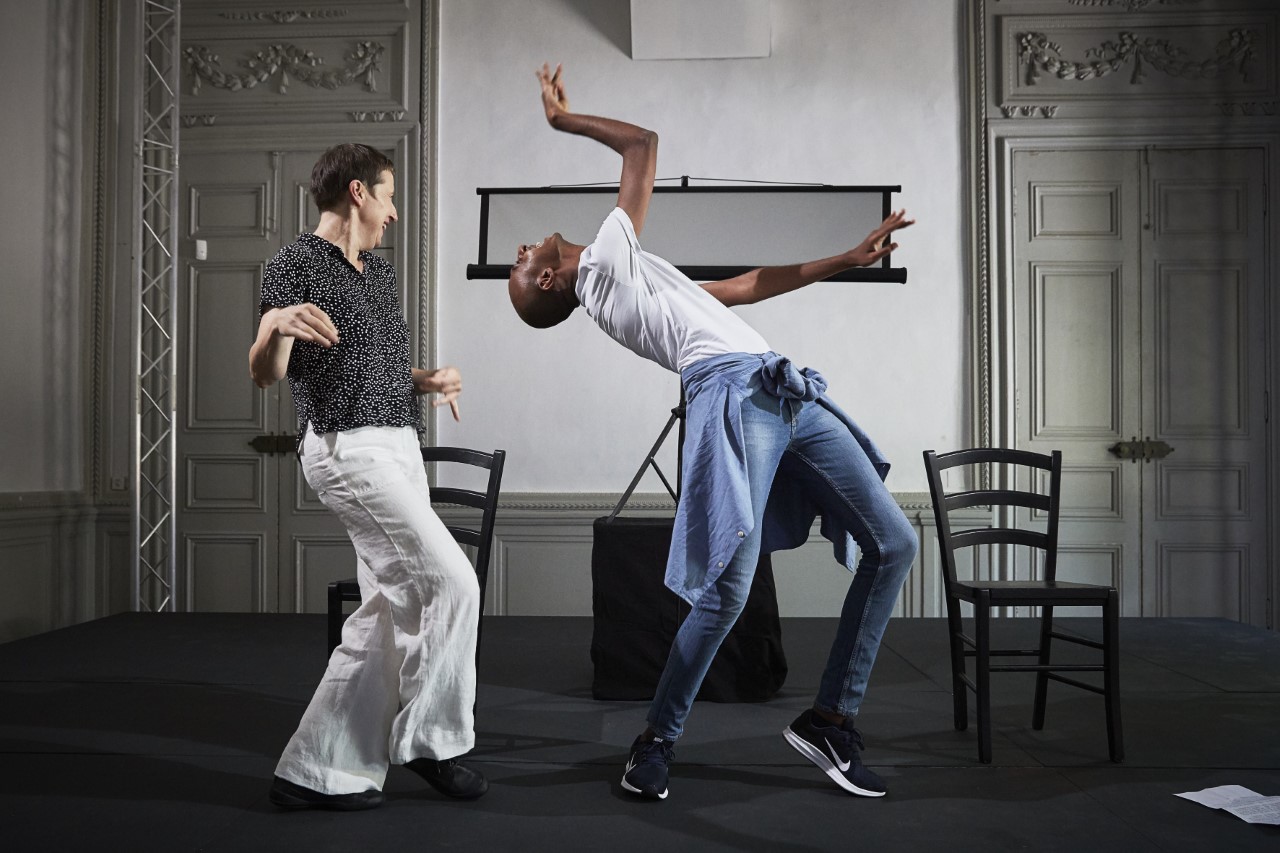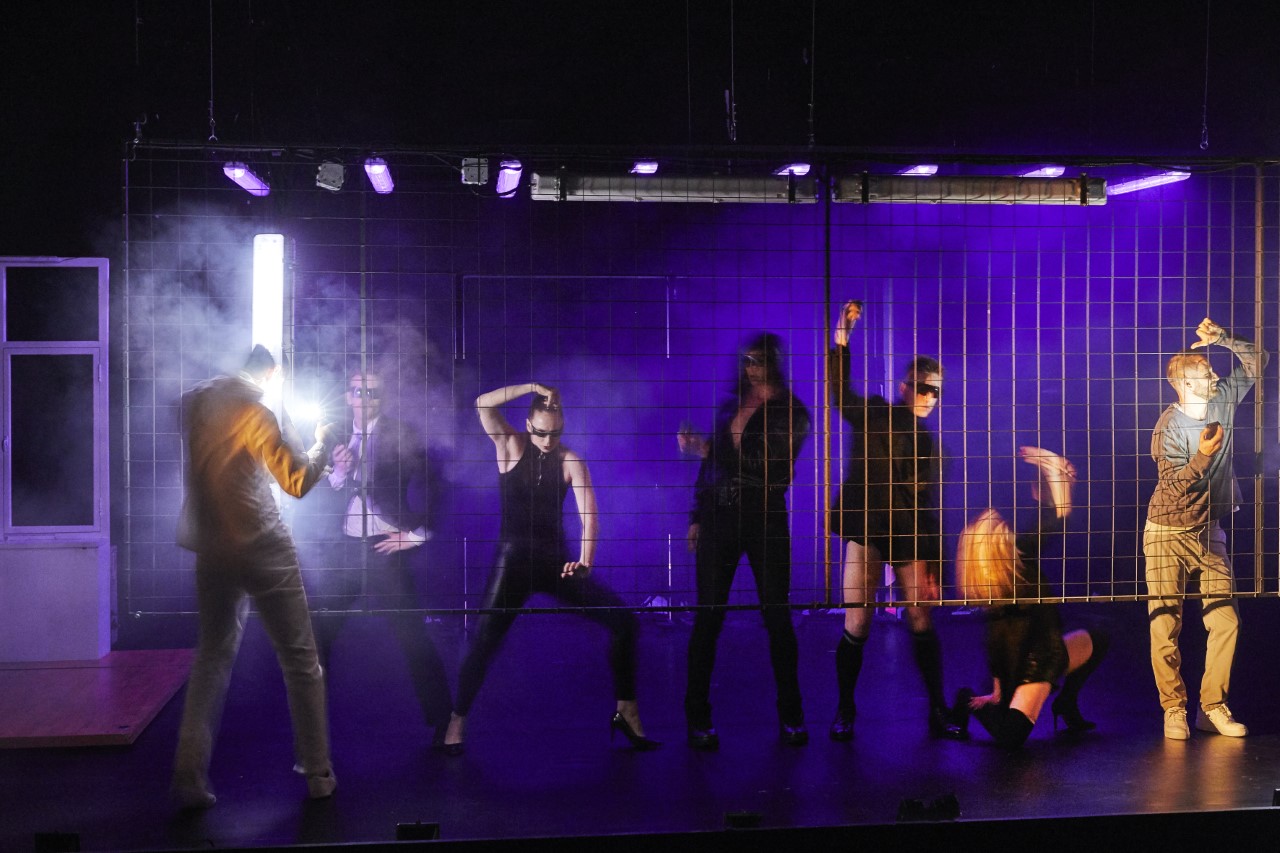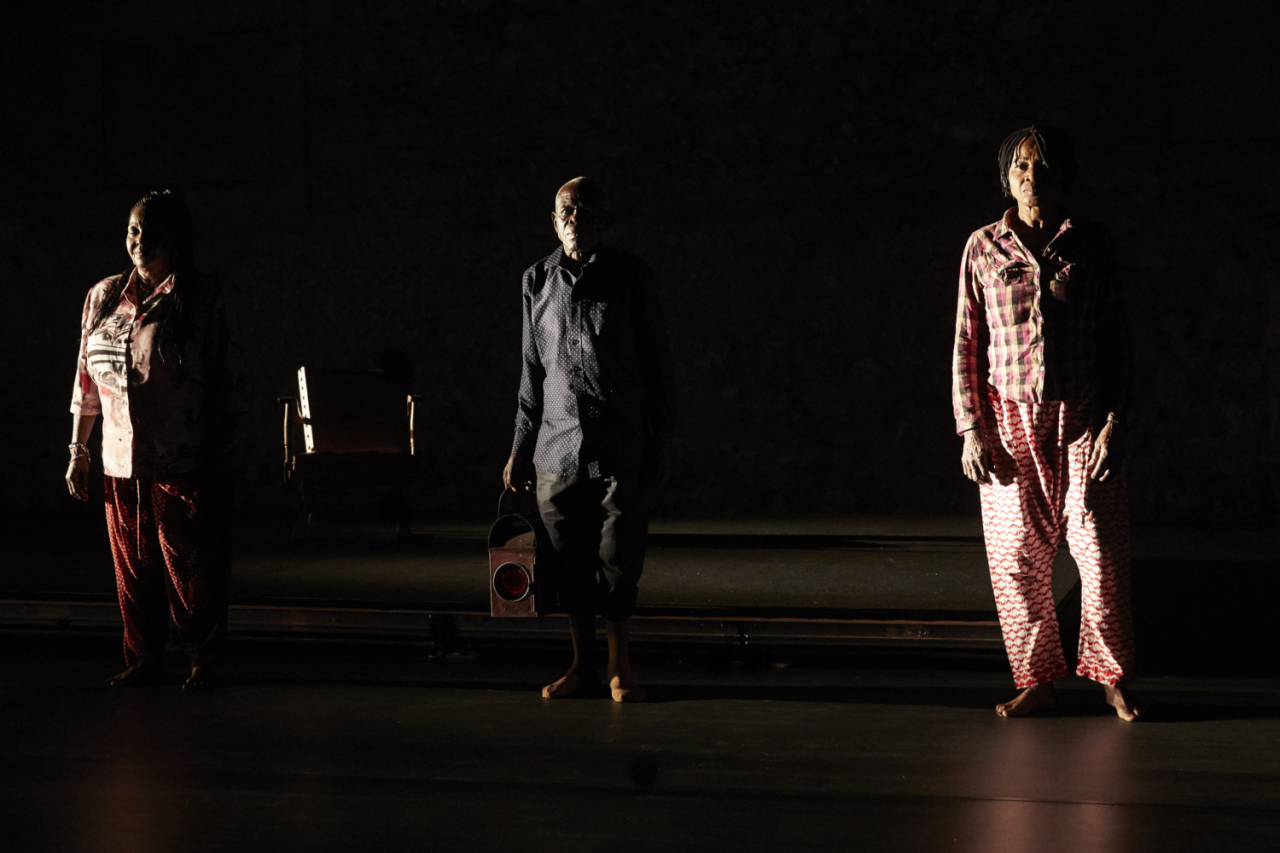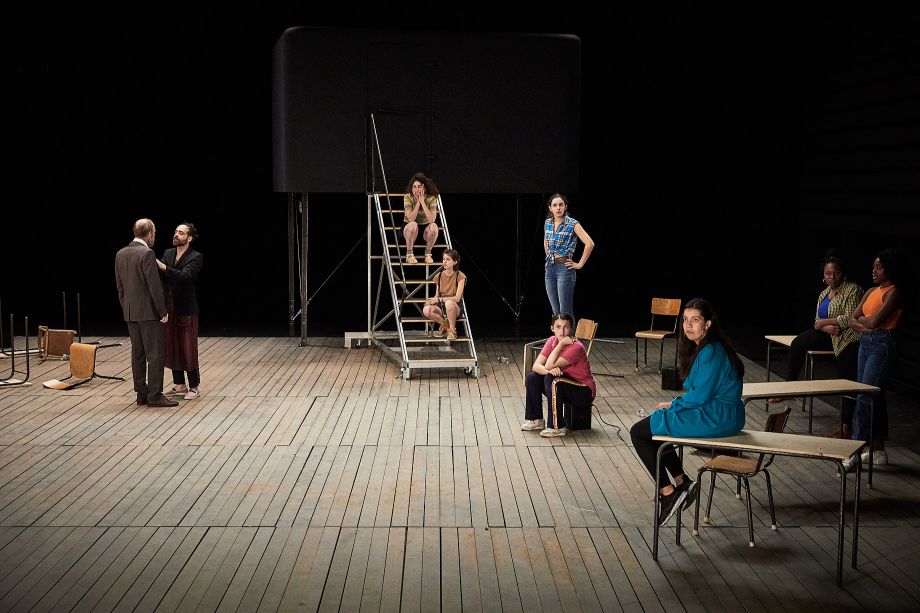« Si c’est un homme » (Se isto é um homem) & « Jeanne d’Arc » (Joana d’Arc). Des monologues
 — Par Janine Bailly —
— Par Janine Bailly —
Le festival d’Almada ne se limite pas à une forme de spectacle, mais se déploie de la performance exceptionnelle abondamment commentée et saluée d’Isabelle Huppert, dans Mary disse o que disse, jusqu’à des créations plus intimes, pièces sans afféteries, sans déploiements excessifs de décors ni vidéos projetées, mais extrêmement belles, nécessaires et touchantes dans leur volontaire dénuement.
Qui ne connaît, n’a lu, ou n’a eu écho du texte de Primo Levi intitulé « Si c’est un homme », « Se isto é um homem », « Se questo è un uomo ». Le titre de l’ouvrage est extrait du poème Shema, écrit sur une plaque commémorative à Livourne, et qui appelle à la transmission, aux générations futures, de la mémoire de l’holocauste. Témoignage autobiographique, essentiel à notre époque de recrudescence en certains pays de mouvements fascistes ou antisémites ou d’extrême-droite, le livre est considéré comme un des plus importants du vingtième siècle. L’auteur se souvient, suscite la mémoire vive de son internement, parle de sa survie dans le camp d’extermination d’Auschwitz, où il fut déporté et détenu de février 1944 jusqu’à la libération du camp en janvier 1945, après avoir été arrêté parce que membre de la résistance italienne au fascisme. …
Read More Read More

 Une des qualités du festival d’Almada, et non des moindres, est de faire se rencontrer, sans avoir aucunement à craindre la comparaison, le théâtre lusophone dans sa contemporanéité et les théâtres différents venus d’autres pays, théâtres émergés d’autres continents, certains nous disant être pour la première fois invités hors de leur pays d’origine. Ainsi la proposition « Do que é que somos feitos ?!, De quoi sommes-nous faits ?! », nous est offerte par la « Compagnie 1ER Temps » originaire de Dakar et jointe à la « Compagnie ABC » de Paris. Une création riche de sens, et qui comme tout bon spectacle, ne se donne pas dans l’instant à comprendre tout entière.
Une des qualités du festival d’Almada, et non des moindres, est de faire se rencontrer, sans avoir aucunement à craindre la comparaison, le théâtre lusophone dans sa contemporanéité et les théâtres différents venus d’autres pays, théâtres émergés d’autres continents, certains nous disant être pour la première fois invités hors de leur pays d’origine. Ainsi la proposition « Do que é que somos feitos ?!, De quoi sommes-nous faits ?! », nous est offerte par la « Compagnie 1ER Temps » originaire de Dakar et jointe à la « Compagnie ABC » de Paris. Une création riche de sens, et qui comme tout bon spectacle, ne se donne pas dans l’instant à comprendre tout entière. — Par Janine Bailly —
— Par Janine Bailly —
